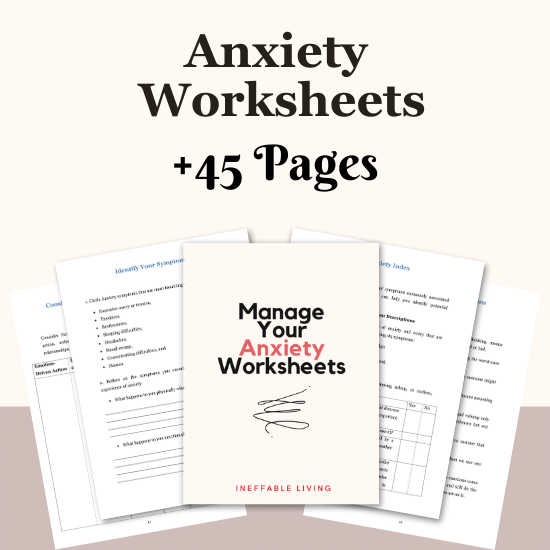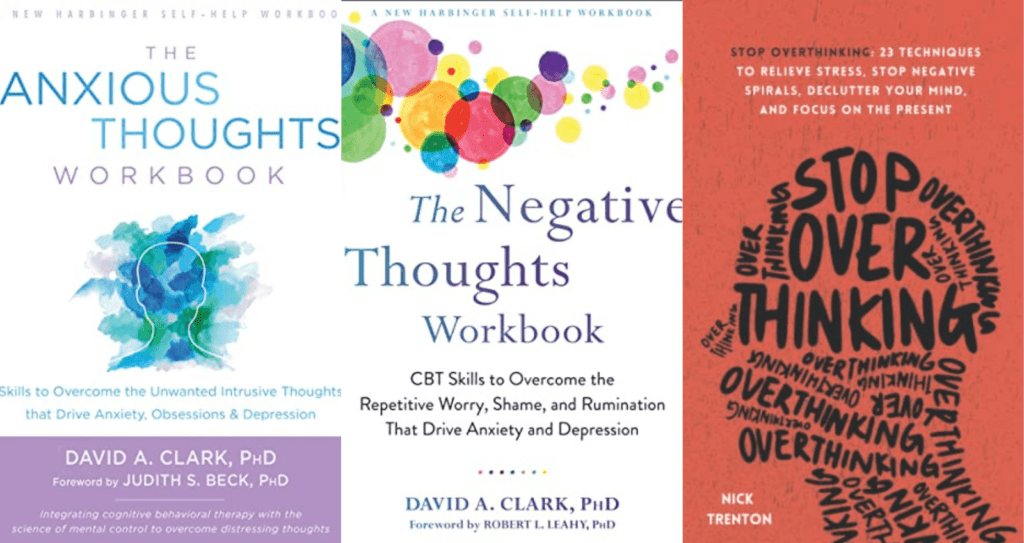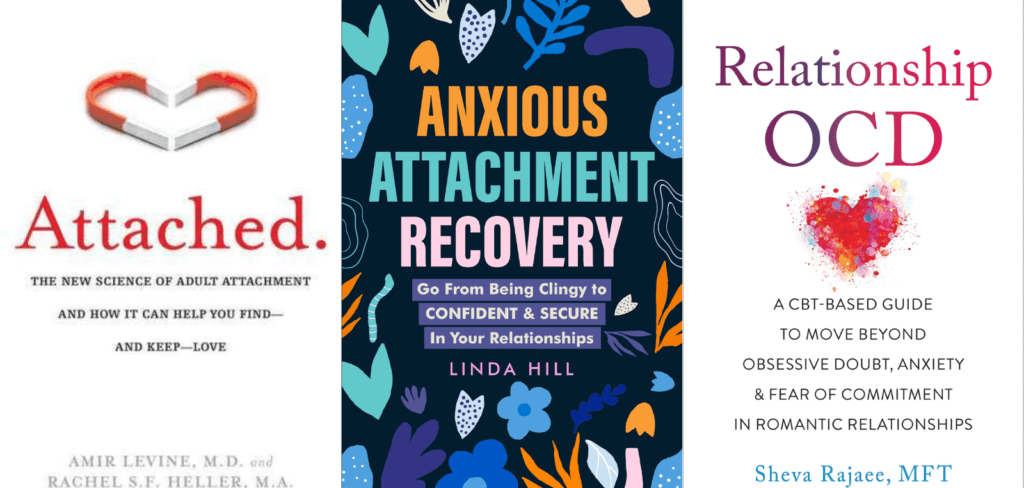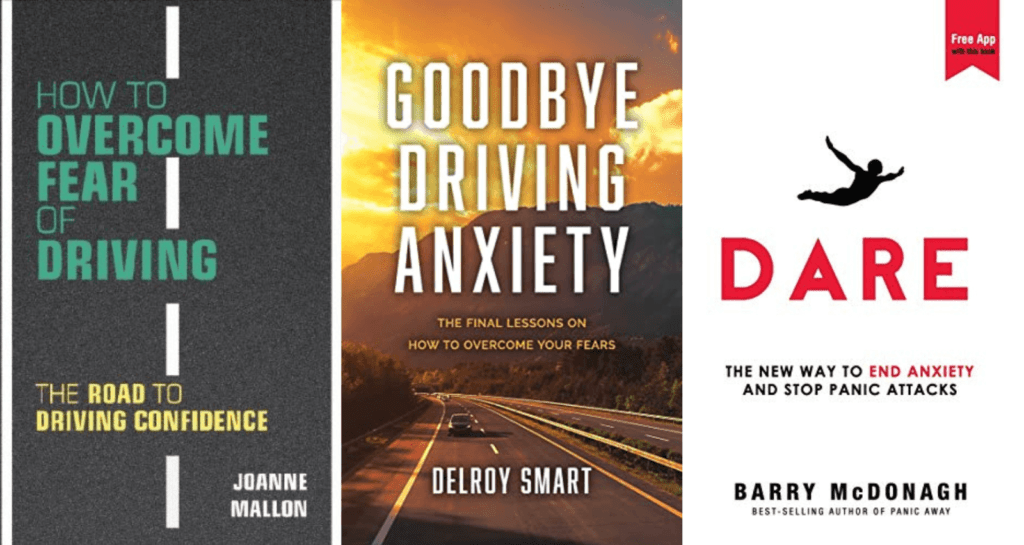The following are some of the best intrusive thoughts books to help you relieve anxiety and stress.
Disclosure: Some of the links below are affiliate links. This means that, at zero cost to you, I will earn an affiliate commission if you click through the link and finalize a purchase.
What Are Intrusive Thoughts?
Intrusive thoughts are unwanted and disturbing thoughts that pop up in an individual’s mind against their will.
These thoughts can be distressing, repetitive, and sometimes even disturbing or violent in nature.
They often cause anxiety, guilt, or shame because they may go against a person’s moral values or personal beliefs.
It is important to note that having intrusive thoughts does not mean a person wants to act on them.
Intrusive Thoughts Books

1. Overcoming Unwanted Intrusive Thoughts
By Sally M. Winston PsyD, Martin N. Seif PhD
In this compassionate guide, you’ll discover the different kinds of disturbing thoughts, myths that surround your thoughts, and how your brain has a tendency to get “stuck” in a cycle of unwanted rumination. You’ll also learn why common techniques to get rid of these thoughts can backfire.
And finally, you’ll learn powerful cognitive behavioral skills to help you cope with and move beyond your thoughts, so you can focus on living the life you want. Your thoughts will still occur, but you will be better able to cope with them—without dread, guilt, or shame.
This book has been selected as an Association for Behavioral and Cognitive Therapies Self-Help Book Recommendation
Related: Journal Prompts For Anxiety (+FREE Anxiety Worksheets)

2. Rewire Your Anxious Brain
By Catherine M. Pittman PhD, Elizabeth M. Karle MLIS
In the book, Pittman and Karle make it simple by offering specific examples of how to manage fear by tapping into both of these pathways in the brain. As you read, you’ll gain a greater understanding how anxiety is created in the brain, and as a result, you will feel empowered and motivated to overcome it. The brain is a powerful tool, and the more you work to change the way you respond to fear, the more resilient you will become.
Using the practical self-assessments and proven-effective techniques in this book, you will learn to literally “rewire” the brain processes that lie at the root of your fears.
Related: Top 10 Practical CBT Exercises For Generalized Anxiety Disorder Relief

3. Stop Overthinking
By Nick Trenton
Stop Overthinking is a book that understands where you’ve been through,the exhausting situation you’ve put yourself into, and how you lose your mind in the trap of anxiety and stress.
Acclaimed author Nick Trenton will walk you through the obstacles with detailed and proven techniques to help you rewire your brain, control your thoughts, and change your mental habits.What’s more, the book will provide you scientific approaches to completely change the way you think and feel about yourself by ending the vicious thought patterns.
Related: 30 Day Social Anxiety Challenge That Will Help You Feel More Confident

4. The Wisdom of Anxiety
By Sheryl Paul MA
In The Wisdom of Anxiety, counselor Sheryl Paul examines the deeper meaning of the racing thoughts, sweaty palms, and insomnia that accompany the uncertain moments of our lives. No one likes to feel anxiety―and yet, Paul asserts it can be a remarkably direct messenger of our subconscious. Here you will learn how you can pause and listen to your anxieties to discover inner truths that you’ve been avoiding.
This lyrically written book not only considers the many forms anxieties can take, but also provides deep-dive practices for addressing them at their roots.
Related: What Causes Cognitive Distortions? (+Top 10 Common Cognitive Distortions & How To Challenge Them)

5. Break Free from Intrusive Thoughts
By Debra Kissen, Micah Ioffe, Emily Lambert
Break Free from Intrusive Thoughts is a sensitive, modern guide to developing a more accepting relationship with them so you can stop them from holding you back.
- The truth about intrusive thoughts―Learn what intrusive thoughts are, what causes them, and what they really mean.
- Different recovery techniques―Explore a range of therapy techniques, including Cognitive Behavioral Therapy, Exposure and Response Prevention, Acceptance and Commitment Therapy, and mindfulness.
- Hands-on healing―Get unstuck from unhelpful thinking patterns through exercises like writing out your fears and labeling your emotions, so you can accept your intrusive thoughts and let them pass.
Related: CBT For Phobias – Top 7 Phobias To Overcome For Good Using Cognitive Behavioral Therapy

6. The Intrusive Thoughts Toolkit
Written by a team of mental health experts and grounded in evidence-based therapy, Intrusive Thoughts Toolkit provides fast-acting tools for soothing distressing thoughts in the moments when you need it most. With this take-anywhere guide, you’ll learn proven techniques to get unstuck from negative thoughts and feelings, adopt healthier thinking habits, and increase overall well-being. You’ll also find easy and doable ways to help you press pause on spiraling thinking, and in-the-moment interventions to help you quiet your mind before your thoughts get out of control.
Related: Emetophobia Quiz (Vomit Phobia)
Intrusive Thoughts Workbooks

7. The Negative Thoughts Workbook
By David A. Clark PhD
The Negative Thoughts Workbook offers a step-by-step program to help you target and effectively cope with negative thinking patterns. Based on effective cognitive behavioral therapy (CBT) strategies, this practical guide outlines a transdiagnostic approach to managing the thoughts that drive your emotional distress and threaten your mental health and well-being. You are not condemned to a life of constant, chaotic, or disturbing thoughts.
If you’re ready to take shelter from the storm inside your head, the easy-to-follow activities in this evidence-based workbook will help you gain control over your cycles of negative thinking.
Related: How To Overcome Agoraphobia Without Medication? 9-Step Guide To Control Panic Attack In Public

8. The Anxious Thoughts Workbook
By David A. Clark PhD
In The Anxious Thoughts Workbook, renowned psychologist David A. Clark presents a targeted, transdiagnostic approach to help you move past unwanted mental intrusions. You’ll learn how to change the destructive patterns responsible for the persistence of anxious and depressive thinking, and strip these upsetting thoughts of their meaning—a process Clark refers to as “detoxing.” Finally, you’ll learn to manage the feelings of shame that can accompany these thoughts.
Related: High Functioning Anxiety Test (& How To Support Anxiety Recovery)

9. The Unwanted Thoughts and Intense Emotions Workbook
By Jon Hershfield, Blaise Aguirre
Written by two pioneers in the field of mental health, this workbook combines two powerfully effective treatments to address relentless, intrusive, and unwanted thoughts—as well as the painful and intense emotions these thoughts can trigger. In this evidence-based workbook, you’ll find an innovative blend of cognitive behavioral therapy (CBT) and dialectical behavior therapy (DBT) skills to manage obsessive, self-blaming, judgmental, and catastrophic thoughts—and find lasting emotional balance.
You’ll learn essential CBT skills to help you tolerate distressing thoughts and stay calm when thoughts feel overpowering; as well as DBT skills like distress tolerance, interpersonal effectiveness, emotional regulation, and mindfulness to find reliable relief.

How Intrusive Thoughts Books Can Help
Here’s how intrusive thoughts books can help:
1. Education and Awareness: Intrusive thoughts books provide valuable information about the different types of intrusive thoughts, their causes, and the science behind them. They help readers understand that these thoughts are common and often unrelated to one’s true desires or intentions. This knowledge can reduce feelings of shame, confusion, and isolation, making it easier to address the issue.
2. Identifying Patterns: Books on intrusive thoughts often contain real-life examples and case studies that help readers recognize patterns in their own thoughts. This understanding empowers individuals to identify triggers or situations that lead to intrusive thoughts, making it easier to anticipate and manage them.
3. Coping Strategies: These books provide a range of practical techniques and coping strategies to help individuals deal with intrusive thoughts. They may include cognitive-behavioral therapy (CBT) exercises, mindfulness techniques, exposure-response prevention (ERP), grounding exercises, and relaxation techniques. Readers can experiment with various strategies and find what works best for them in managing their intrusive thoughts.
4. Self-Help Tools: Many intrusive thoughts books include worksheets, journal prompts, and other self-help tools that enable readers to actively engage in their healing process. These resources encourage reflection, self-awareness, and self-expression, facilitating personal growth and progress.
5. Support and Validation: Reading about others’ experiences with intrusive thoughts can provide a sense of validation and reassurance that one is not alone in dealing with these thoughts. It can also instill hope by sharing success stories of individuals who have overcome or learned to manage their intrusive thoughts effectively.
6. Professional Guidance: While books can provide valuable insights and strategies, they should not replace professional help. However, books on intrusive thoughts can be a helpful complement to therapy or counseling. They can enhance treatment by providing additional information, support, and tools that individuals can use in conjunction with professional guidance.
Conclusion
Intrusive thoughts can be distressing and disruptive, causing anxiety and distress.
Books on intrusive thoughts can help individuals better understand the nature of these thoughts, learn coping strategies, and find ways to manage them effectively.
Remember, seeking support from a mental health professional is crucial, especially if intrusive thoughts significantly interfere with daily life or cause distress.
Books can be a helpful resource, but they are not a substitute for professional help.



